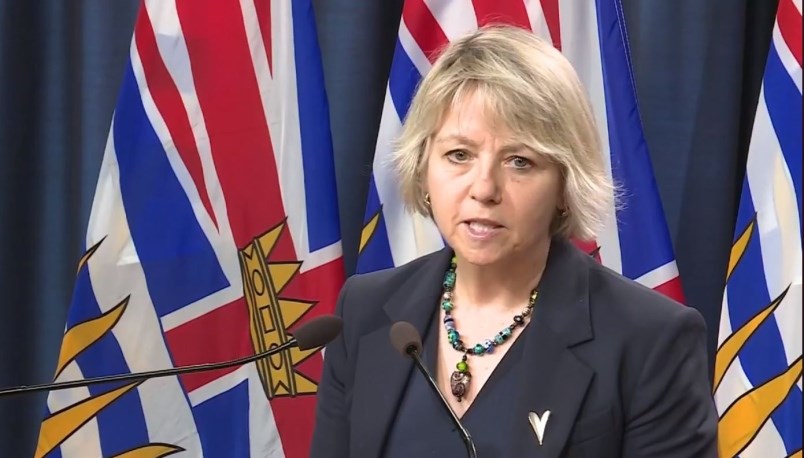There are now 2,087 cases of the coronavirus (COVID-19) in B.C., after health officials announced 34 new cases Wednesday.
Provincial health officer Dr. Bonnie Henry reports that there are 811 cases in Â鶹´«Ã½Ó³»Coastal Health (VCH), 941 in Fraser Health, 120 on Â鶹´«Ã½Ó³»Island, 169 in Interior Health and 46 in Northern Health.
There have been two new outbreaks in long-term care facilities. Currently, there are 24 active outbreaks in long-term facilities and three acute care unit outbreaks in the Â鶹´«Ã½Ó³»Coastal Health and Fraser Health regions, with 252 residents affected and 152 staff. Outbreaks are declared over at 13 care facilities.
The outbreak at the Mission federal correctional institute in the Fraser Valley has not grown since yesterday's two new cases were announced. The number of positive COVID-19 cases remains steady at 120 cases.
50 people have tested positive in the ongoing outbreak at Superior Poultry, a chicken processing plant in Coquitlam. The number of positive cases related to the initial outbreak announced earlier this week at United Poultry Company Ltd., a Â鶹´«Ã½Ó³»processing plant, has grown to 42. Investigations are ongoing at both plants.
Eleven cases connected to the Kearl Lake project in Alberta, have been confirmed to date, Henry added. However, she notes that there are several hundred people associated with the project, and that anyone who has been in the project since March 24 needs to self-isolate. In addition, she mentions that the health authority has been given a list of names of individuals connected to the facility that they are contacting.
There have been an additional four deaths, for a total of 109 fatalities in the province. All four new deaths were seniors in long-term care facilities.
There are currently 89 people in acute care in hospital and 35 are in critical care.
1,305 people have fully recovered and are no longer in isolation.
Henry adds that a total of 87 people have tested positive for COVID-19 that are linked to the Pacific Dental Conference. There has also been one death associated with the outbreak.
The provincial COVID-19 testing strategy continues to evolve, and Henry underscores that testing is available to anyone who has symptoms, "including even very mild symptoms." With this in mind, she adds that random testing of anyone in the community who shows little to no symptoms leads to false negative and false positive results.
Over 900 temporary workers came into B.C. over the last few weeks, and Henry states that additional measures are being offered to help support them. Government measures include medical support, social support and accommodation so that individuals may effectively quarantine.
Henry notes that the province will provide the latest COVID-19 modeling on Monday, as well as the latest details on the epidemiology regarding who has been affected in B.C.
"You have demonstrated the creativity, compassion and care that we needed," Henry remarks.
"We need to continue to work together to continue to make a difference."
Earlier this week, Henry stated that despite a number of community outbreaks, the decrease in cases is clear evidence that the sustained efforts to follow public health measures has slowed the rate of transmission of COVID-19.
"In addition, our increased surveillance testing has led us to find people in our community who are postive for COVID-19 and the vast majority of them our linked to outbreaks now, which is an important thing for us to understand so that we know where transmission is happening in our community," Henry said.
On Saturday, Henry raised the issue of domestic violence in the age of physical distancing. While staying home is the best method to bend the COVID-19 curve, she said, "In many cases this has led to increased family stresses and a decrease in community connections. Unfortunately, for some being at home means not being safe," she said, adding that domestic violence is known to, potentially, increase during a crisis like the ongoing pandemic.
"If you are experiencing violence, it's not okay," Henry said. "We want you to know that you are not alone, there are resources out here, that we have, that are available for you." She urged those in immediate danger to call 911, and also cited as a toll-free, confidential resource available 24 hours a day.
- With files from Megan Lalonde.



